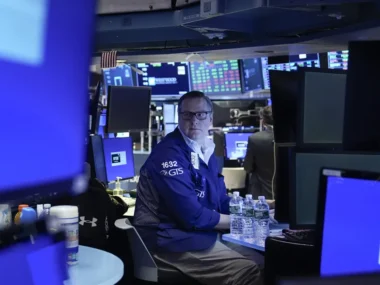Tech Leaders Issue Stark Warnings Amidst Growing Frustration with UK Regulations
In a scene that left no room for poker-faced neutrality, a leader of a prominent US tech firm disclosed a chilling ultimatum: a definitive threshold at which the company would exit the UK. As the collective astonishment of onlookers rippled through the room, a profound realization settled in—the dire words reverberated among the very individuals who toiled within the company’s walls.
Whispers of this impending departure had been shrouded in secrecy, concealed even from many insiders. The revelation sent shockwaves through an industry grappling with a changing landscape and grappling for stability.
While the phrase “future of work” often conjures images of remote collaboration and virtual interfaces, the construction sector remains steadfast in its physical presence. Remote work is a notion the industry couldn’t entertain. Innovation has been slow to penetrate its traditional ethos, a fact acknowledged but rarely discussed.
Yet the murmurs of transformation persist beneath the surface. Within the realm of construction, a remarkable shift towards embracing new technologies is unfolding—a divergence from the industry’s historical customs. The mantra “Move fast and break things” might not resonate with builders, but the allure of innovations that promise substantial gains with minimal drawbacks is undeniable.
The construction sector’s willingness to embrace pioneering technologies is particularly evident when confronted with seemingly insurmountable challenges. While maintaining tradition, it’s also beginning to recognize that the fusion of tradition and innovation might hold the key to solving long-standing issues.
As the construction tech revolution unfolds, the perspectives of its visionary founders provide a captivating glimpse into the journey ahead. Stakeholders—employers seeking optimization and employees charting their professional trajectories—are eagerly awaiting these insights.
In the days to come, our exploration will delve into the impending transformations poised to reshape the construction industry’s landscape. Before embarking on this transformative voyage, a survey of construction tech trends provides context, hinting at the sea change on the horizon.
Exclusive conversations with the vanguards of construction tech afford us an unparalleled look into their outlooks and strategies. These pioneers stand at the crossroads of tradition and innovation, their insights propelling the industry towards an electrifying future.
Yet challenges abound as tech and tradition meet on uncertain ground. Big Tech’s track record has been marred by controversies, amplifying the call for overdue regulation and accountability. It’s important to distinguish “pro-innovation” from “pro-Big Tech,” warns Professor Neil Lawrence of Cambridge University. In his view, fostering innovation means creating room for startups and smaller companies in burgeoning digital markets.
The regulatory landscape is fraught with complexity, and those shaping it often struggle to keep pace with rapidly evolving technologies. Economist Dame Diane Coyle highlights a knowledge gap within the government, underscoring the potential risks to cherished services in the nation.
Experts with deep technical understanding are available to advise on policy matters, yet their voices often fall on deaf ears. The Department for Science, Innovation, and Technology insists on collaborative efforts with industry experts but criticism persists, suggesting a gap between intent and execution.
The potent mixture of ignorance and arrogance is a perilous concoction, asserts cyber-security expert Prof Alan Woodward. He reveals a frustration shared by many experts who feel unheard and undervalued in the face of intricate technological landscapes.
While US tech giants wrestle with regulations in the UK, the growing sentiment is one of growing disillusionment and discontent. The imminent passage of the Online Safety Bill, geared towards protecting children, has raised concerns within the sector. This legislation imposes strict regulations on social media content and includes penalties, even prison time, for tech executives in case of non-compliance.
However, the thorniest issue revolves around encrypted messaging apps like WhatsApp. A proposed clause would allow these platforms to read and hand over encrypted messages to law enforcement if a national security or child protection risk is perceived. This stance, although aimed at safeguarding, is also seen as a potential intrusion on privacy and essential security tools.
As UK regulations evolve, the landscape for US tech giants becomes increasingly precarious. Their “tipping point” nears, and the ominous possibility of their exit looms. The intersection of tradition, innovation, and regulation has ignited a confluence of sentiments—uncertainty, frustration, and determination—as the industry navigates an uncertain future.











